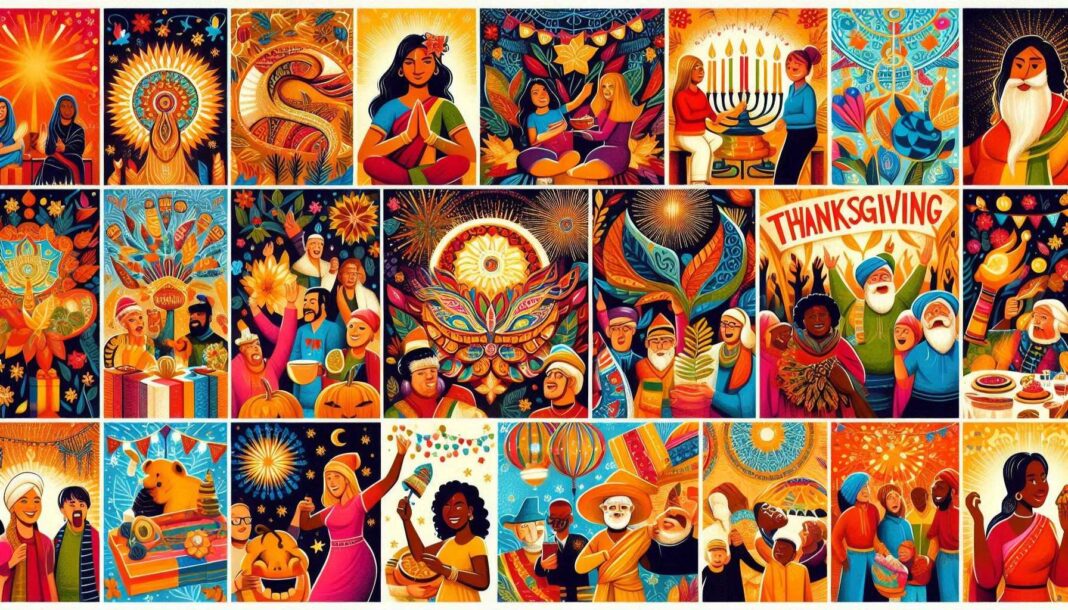January 2025 is a spiritually significant month for Hindus, as it hosts a variety of festivals that embody devotion, cultural traditions, and ancient rituals. These festivals are essential not only for religious observance but also for fostering social harmony and family bonding. This guide will delve into the major Hindu festivals occurring in January 2025, providing insights into their significance, rituals, and cultural importance.
Read More About Hindu Philosophy
1. Putrada Ekadashi – Friday, 10th January 2025
Significance:
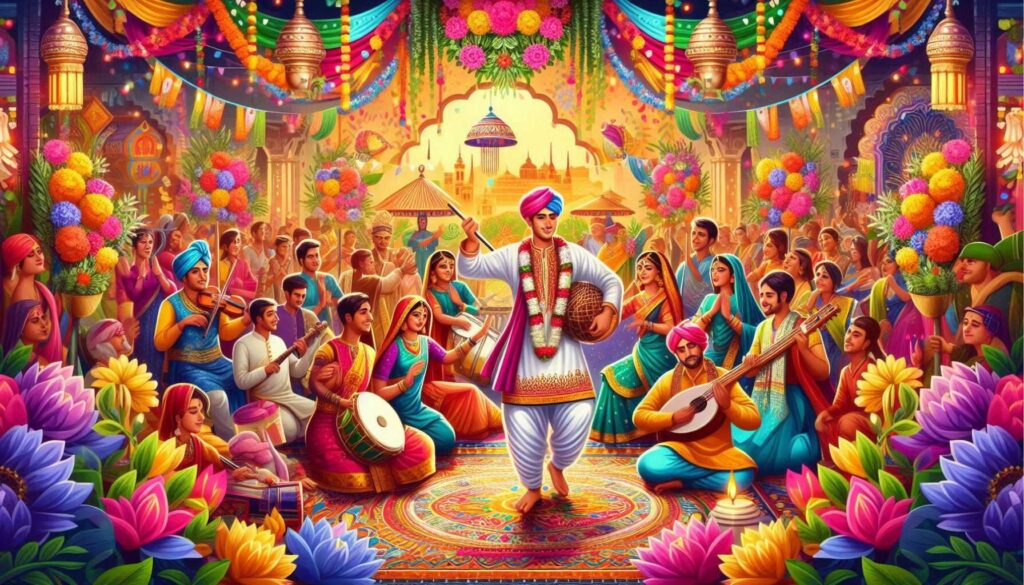
Pausha Putrada Ekadashi, falling during the month of Pausha, is a special day of fasting and prayer dedicated to Lord Vishnu. This Ekadashi is particularly significant for married couples who wish to have children. The word “Putrada” translates to “giver of sons,” and it is believed that fasting and offering prayers on this day bless couples with progeny and a prosperous family life.
Rituals and Traditions:
- Fasting: Devotees observe a strict fast, refraining from consuming grains and legumes. Some devotees may opt for a complete water fast.
- Prayer and Worship: Special prayers are offered to Lord Vishnu. The Vishnu Sahasranama, a sacred text listing the thousand names of Vishnu, is recited to seek divine blessings.
- Temple Visits: Devotees visit Vishnu temples, where special pujas are performed. Couples hoping for a child participate in rituals to invoke Lord Vishnu’s blessings for a healthy family.
- Breaking the Fast: The fast is broken the next day after offering food to Lord Vishnu and distributing it as prasad.
Spiritual Insight:
Pausha Putrada Ekadashi emphasizes the importance of devotion, patience, and family well-being. The fast is seen as a spiritual exercise that purifies the mind and body, allowing devotees to align with higher virtues.
2. Pradosha Vrat (Shukla) – Saturday, 11th January 2025
Significance:
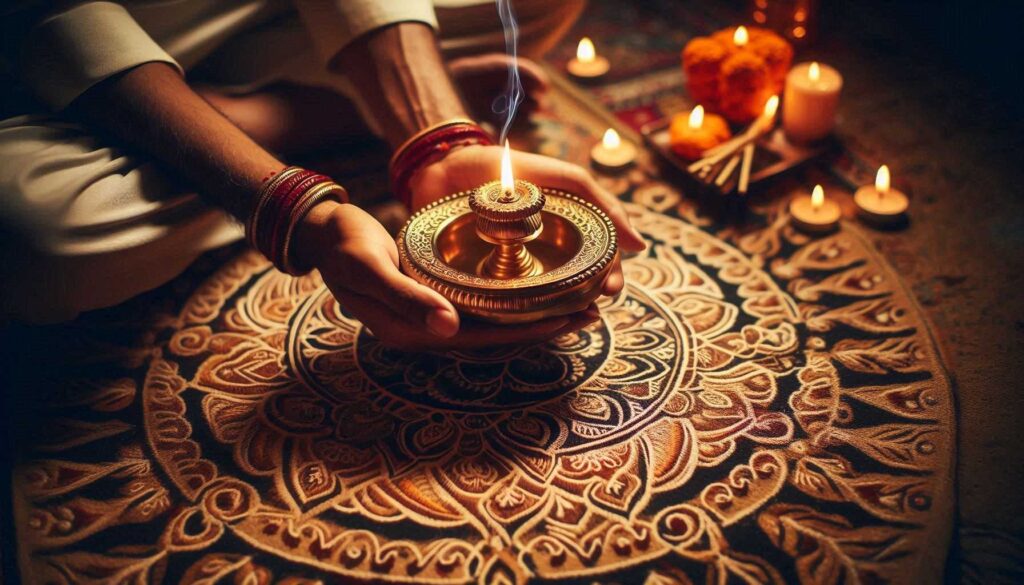
Pradosha Vrat is observed in honor of Lord Shiva. Falling on the 13th day of the waxing moon (Shukla Paksha), this fast is believed to cleanse sins and bring peace, prosperity, and spiritual strength. It is especially important for those seeking Lord Shiva’s grace for overcoming obstacles.
Rituals and Traditions:
- Fasting: Devotees observe a fast, abstaining from heavy meals. Some choose to have only fruits or milk, while others may abstain completely until the evening.
- Worship: During twilight, devotees perform the Abhishekam (ritual bathing) of the Shiva Lingam with milk, water, honey, and other sacred items.
- Chanting and Prayers: The Maha Mrityunjaya Mantra and Om Namah Shivaya are chanted to invoke Shiva’s blessings.
- Temple Aarti: Devotees often attend the evening aarti at local Shiva temples, where special prayers and offerings are made.
Spiritual Insight:
Pradosha Vrat is an opportunity for devotees to surrender their worldly desires and focus on the divine, fostering a deep connection with Lord Shiva.
3. Pausha Purnima Vrat – Monday, 13th January 2025
Significance:

Pausha Purnima marks the full moon day in the month of Pausha. This day is considered highly auspicious for charitable acts, spiritual rituals, and holy river baths. It is also an important day for beginning the Magha Snan, a ritual bathing period in sacred rivers like the Ganges.
Rituals and Traditions:
- Holy Bathing: Devotees take a dip in sacred rivers, as it is believed to wash away sins and purify the soul.
- Charity: Donations of food, clothes, and other essentials are made to the poor and needy. Acts of charity on this day are said to bring spiritual merit.
- Satyanarayana Puja: Many devotees perform the Satyanarayana Puja at home or in temples, seeking prosperity and blessings.
- Full Moon Meditation: The full moon is considered a powerful time for meditation, and many use this opportunity for reflection and spiritual practices.
Spiritual Insight:
Pausha Purnima underscores the importance of self-purification through rituals, charity, and devotion, symbolizing a renewed focus on spiritual growth.
4. Pongal, Uttarayan, Makar Sankranti – Tuesday, 14th January 2025
Significance:
Pongal, Uttarayan, and Makar Sankranti are among the most important harvest festivals in India, celebrating the sun’s transition into Capricorn (Makara Rashi), marking the beginning of longer days. These festivals honor the Sun God and celebrate agricultural prosperity, family bonding, and new beginnings.
- Pongal: This Tamil harvest festival is a thanksgiving to the Sun God (Surya), celebrated by cooking a special dish called Pongal made from freshly harvested rice, milk, and jaggery.
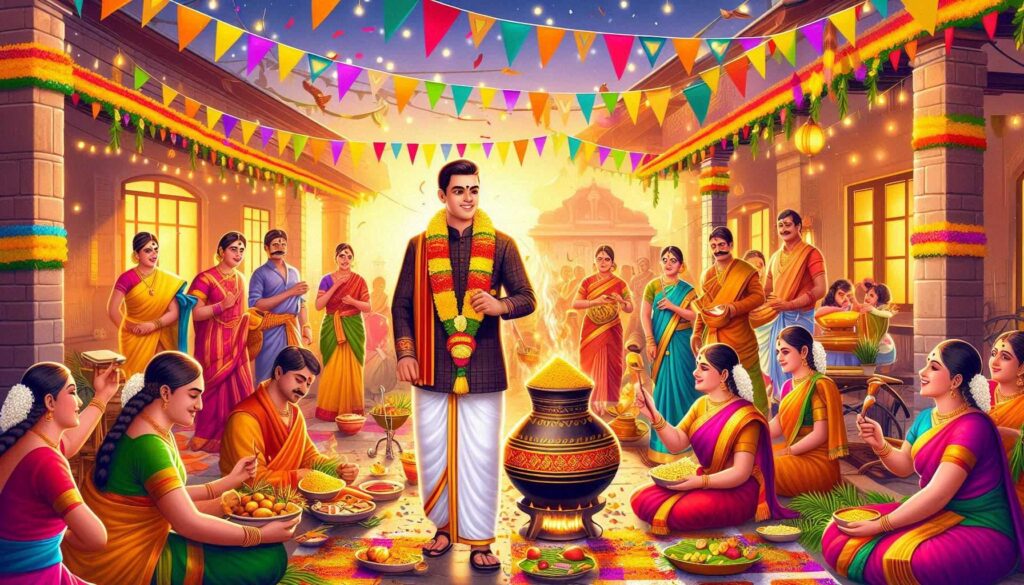
- Makar Sankranti: Celebrated across India, Makar Sankranti marks the sun’s transition to the northern hemisphere. It is observed with kite flying, taking holy dips in rivers, and distributing sweets made of sesame seeds and jaggery.
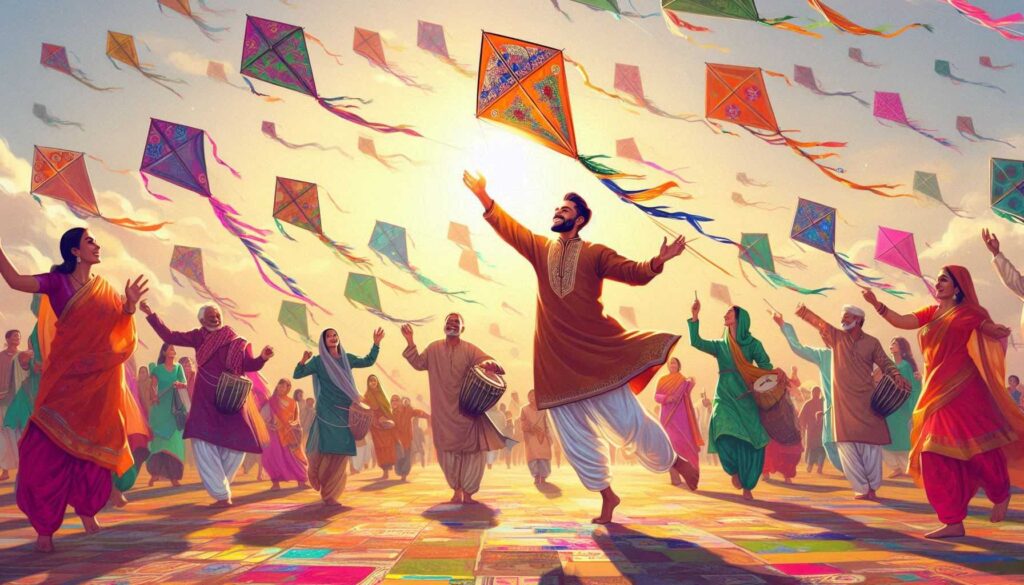
- Uttarayan: This marks the northward movement of the Sun, a period considered highly auspicious for initiating spiritual practices.
Rituals and Traditions:
- Pongal Preparation: In Tamil Nadu, families gather to cook the Pongal dish, which is offered to the Sun God as thanks for a bountiful harvest.
- Kite Flying: In Gujarat and other regions, Makar Sankranti is celebrated by flying colorful kites that fill the skies, symbolizing the freedom and joy that come with the festival.
- Holy River Dips: Devotees across the country take dips in holy rivers like the Ganges to purify their souls and start the year with spiritual purity.
Spiritual Insight:
These festivals celebrate the balance between nature and humanity, symbolizing gratitude for abundance and the beginning of new journeys, both material and spiritual.
5. Sankashti Chaturthi – Friday, 17th January 2025
Significance:
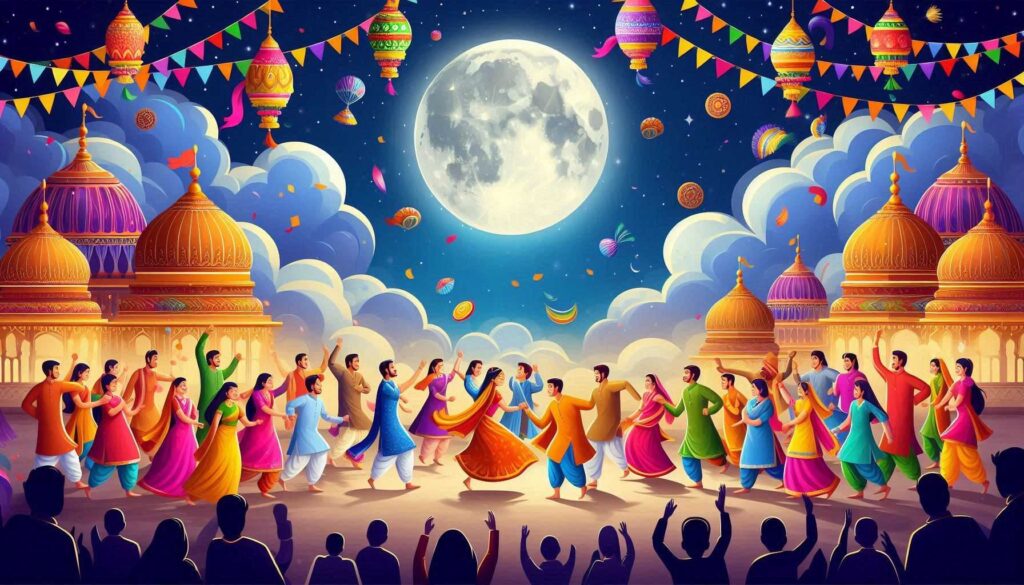
Sankashti Chaturthi, dedicated to Lord Ganesha, falls on the fourth day of the Krishna Paksha (waning moon). It is a day for seeking Ganesha’s blessings to remove obstacles and gain wisdom, making it especially important for devotees facing difficulties in life.
Rituals and Traditions:
- Fasting: Devotees fast from sunrise until moonrise. Some may consume only fruits and milk, while others maintain a strict water-only fast.
- Moonrise Puja: After sighting the moon, devotees offer prayers and offerings such as modaks (sweet dumplings) to Lord Ganesha.
- Ganesha Temples: Many temples perform special Aarti and devotional songs in the evening.
Spiritual Insight:
Sankashti Chaturthi teaches the value of perseverance and devotion, symbolizing the belief that faith in Ganesha can overcome life’s challenges.
6. Shittala Ekadashi – Saturday, 25th January 2025
Significance:
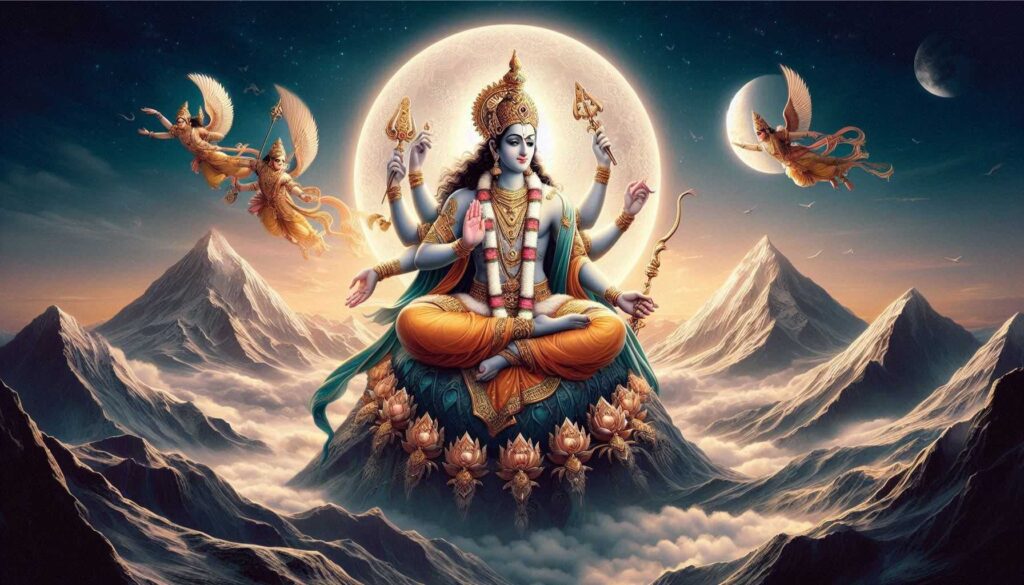
Shittala Ekadashi, dedicated to Lord Vishnu, is observed by fasting and prayer, seeking blessings for health, well-being, and spiritual progress. This Ekadashi falls during the Krishna Paksha of Pausha.
Rituals and Traditions:
- Fasting: Devotees abstain from grains, legumes, and heavy foods, focusing on meditation and worship.
- Vishnu Puja: Special prayers and offerings are made to Lord Vishnu, accompanied by recitations of the Bhagavad Gita and Vishnu Sahasranama.
- Breaking the Fast: The fast is broken the next day after offering food to Lord Vishnu, which is then shared as prasad.
Spiritual Insight:
Shittala Ekadashi emphasizes the importance of self-discipline, prayer, and the purification of the mind and body.
7. Pradosha Vrat (Krishna), Maasik Shivaratri – Monday, 27th January 2025
Significance:

Maasik Shivaratri, observed on the 14th day of the Krishna Paksha, is a special day for worshiping Lord Shiva. Pradosha Vrat, when combined with Shivaratri, offers devotees an opportunity to seek spiritual liberation and the removal of past sins.
Rituals and Traditions:
- Fasting: Devotees fast throughout the day, consuming only light meals or fruits, and perform special prayers in the evening.
- Shiva Puja: In the evening, devotees perform Abhishekam on the Shiva Lingam with water, milk, and honey, accompanied by the chanting of Om Namah Shivaya.
- Night Vigil: Many devotees stay awake throughout the night, meditating and praying to Lord Shiva for spiritual enlightenment.
Spiritual Insight:
Maasik Shivaratri and Pradosha Vrat teach the value of deep devotion, sacrifice, and the pursuit of inner peace.
8. Magha Amavasya – Wednesday, 29th January 2025
Significance:
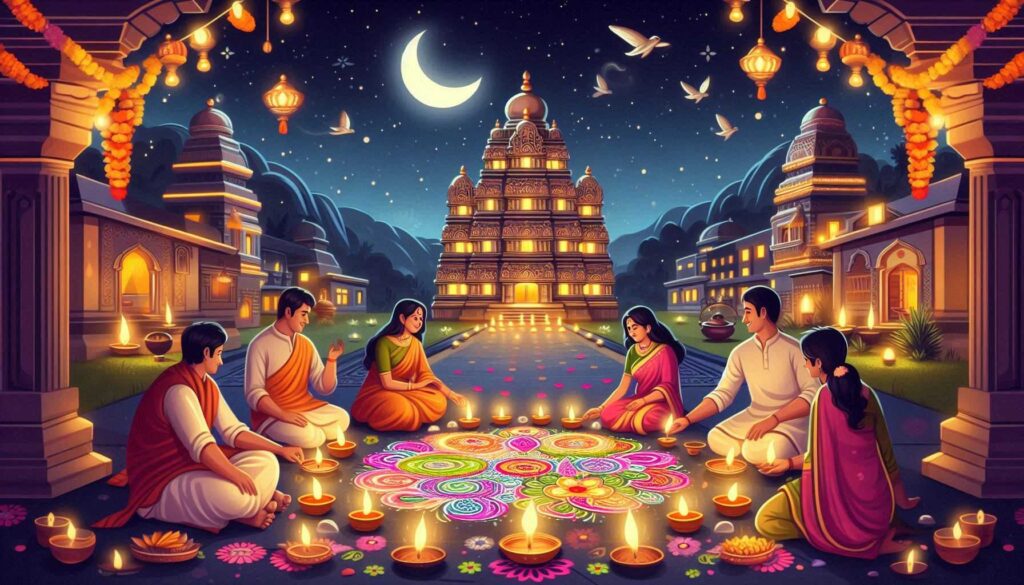
Magha Amavasya is the new moon day in the month of Magha and is considered a highly auspicious day for performing ancestor rituals (Shradh) and charity. It is believed that acts of charity and prayers on this day can bring peace to departed souls and blessings for the living.
Rituals and Traditions:
- Tarpanam: Devotees perform rituals for their ancestors, offering prayers and food to ensure peace for their souls.
- Charity: Acts of charity, such as donating food, clothes, or money to the poor, are performed to bring merit and spiritual blessings.
Spiritual Insight:
Magha Amavasya reinforces the importance of honoring ancestors and the practice of charity, emphasizing the interconnectedness of life and death.

